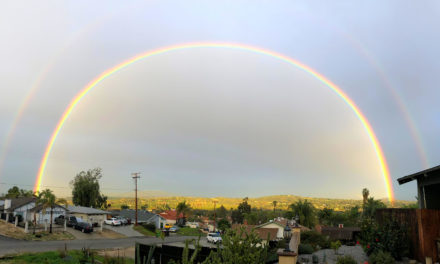But as for you, man of God, shun all this; pursue righteousness, godliness, faith, love, endurance, gentleness. Fight the good fight of faith; take hold of the eternal life, to which you were called and for which you made the good confession in the presence of many witnesses. In the presence of God, who gives life to all things, and of Christ Jesus, who in his testimony before Pontius Pilate made the good confession, I charge you to keep the commandment without spot or blame until the manifestation of our Lord Jesus Christ, which he will bring about at the right time—he who is the blessed and only Sovereign, the King of kings and Lord of lords. It is he alone who has immortality and dwells in unapproachable light, whom no one has ever seen or can see; to him be honor and eternal dominion. Amen.
—1 Timothy 6: 11-16
Exegetical Reflection
In our text, the writer, using colorful metaphors, commands Timothy, a “man of God,” to do four things:
- “[S]hun all this” (lit. “run away from these things”). The preceding material (vv. 6-10) shows that he is talking about Christians who seek riches. Timothy should not be one of them. The material after our text (vv. 17-19) also deals with wealth.
- Instead, he is to “pursue” (lit. “run towards”) the great personal virtues—wealth of a different kind (cf. v. 6).
- He is also to “fight the good fight (lit. “get in the worthwhile game”) of the faith.” Here, “the faith” means the body of teachings, unlike “faith” or trust, one of the virtues in v. 11b. He is to advance and defend Christian doctrine as the Church’s wealth.
- Finally, he is to “take (lit. “grab”) hold of the eternal life.” This doctrine, based on belief in Jesus’ resurrection, was the central teaching of earliest Christianity—its most valuable commodity.
In summary, Timothy is “to keep the commandment,” which here must mean the four things he has just ordered. To heighten the seriousness, the writer invokes God, “the only Sovereign,” and Jesus, the model confessor, as witnesses.
—Warren Trenchard
Descriptive-Theological Reflection
News headlines these days describe a global pandemic as a war. We read of medical personnel on the frontlines fighting the virus/enemy, COVID-19. Similarly, the rhetoric of war (1Tim 6:12) frames Paul’s understanding of a Christian witness. Neither COVID-19 nor the life of faith is a battle, these are unhelpful metaphors that obscure the confession of relational eschatology influenced by a doctrine of creation that believes life is interdependent.
Social distancing practices affirm the precarity of life and in the midst the disruption of our everyday rituals (routines, habits) we are learning that social isolation is not social disengagement. In fact, social distancing practices are bringing the apocalypse we so desperately need.
We are living through an apocalypse, a revelation and unveiling of truths we now cannot ignore in our neoliberal capitalist society. Planetary life is interdependent. The Earth is giving us a restraining order and we must confess our practices of extraction are a misrepresentation of our faith. Moreover, the unveiling of “essential” lives obscured by a capitalist society is coming into view. The grocers, food/farm workers, janitors, maintenance crews, teachers, garbage collectors and hair dressers deserve a living wage. Our confession in the presence of no witnesses is that we are not at war, we are in a time of revelation and we can finally see how our salvation and our lives are intimately tied to one another.
—Marlene Ferreras
Systematic-Theological Reflection
Bernard of Clairvaux, one of the great Church Fathers, once reflected on 1 Tim. 6:16, “And the Word was with God, dwelling undoubtedly in inaccessible light… He [God] was incomprehensible and inaccessible, invisible and unthinkable. But he truly wanted to be comprehended, he wanted to be seen, he wanted to be thought.” Following St. Bernard, many theologians pointed at the significance of incarnational revelation in Jesus Christ, which 1 Tim. 6:11-16 accentuates. The words “confess” (homologia) and “witness” (martureo) (vv. 12, 13) underscore the profound connection between Jesus’s public words and actions and lives of his followers. Theologically speaking, Jesus Christ became an exemplar of self-disclosure and transparency, and following Christ could only be viewed as a public manifestation of Divine love and grace enacted in the lives of Christians. Similarly, Jesus called his followers in Matt. 5:16—”let your light shine before others…”
In Christianity, rituals such as baptism or ordination, both of which related to the concepts of incarnational homologia and martureo, emphasized the profound public self-disclosure of the Christian identity. Thus, living in the digital age of ubiquitous anonymity and questionable accessibility, believers might ask, “If, in the perfect self-disclosure of Jesus Christ, God has chosen ‘to be seen’ and ‘to be thought,’ what about God’s followers?”
—Vadim Dementyev
Pastoral Reflection
It’s a simple metaphor employed in a careful critique of India’s response to the COVID-19 crisis. Arundhati Roy’s Financial Times article burned its way around the Internet in part because a simple metaphor captured us. Roy says, “Historically, pandemics have forced humans to break with the past and imagine their world anew. This one is no different. It is a portal, a gateway between one world and the next.” The pandemic is a portal.
Transition between worlds is neither direct nor discernable while standing in liminal space. And patience for liminal space is not a human super power. Yet from inside our current portal we can task ourselves this serious assignment: sharpen our Christian confession. We are not the first to find ourselves transitioning between worlds, as we see from the counsel in 1 Timothy. What distracts our witness and distorts the Gospel we’ve taught? And when pandemic lifts, what marks a more faithful community, one that shares the “good confession” with Jesus?
The author from the 1st century speaks into our 21st century situation with a reminder that our shared lives are lived in the presence of God who gives life to all things and of Christ Jesus who embodies this life. Maybe Christian disciples right now are to fuss less for personal gain and instead, hold still in the portal and learn to sing Doxology as we’ve never sang it before.
—Chris Oberg
May you never lose sight of God’s grace and love!
Be well!
HMS Richards Divinity School




